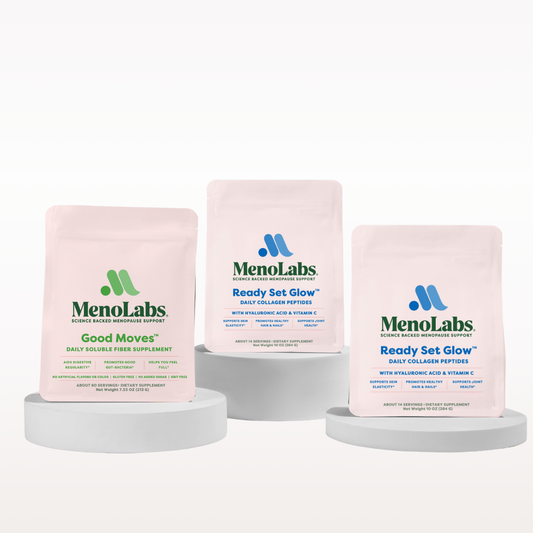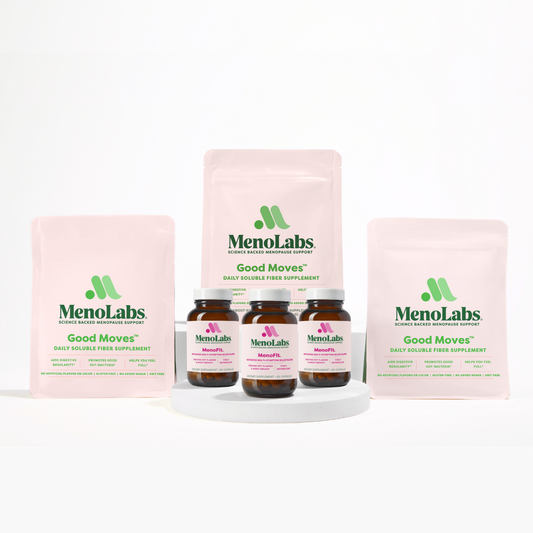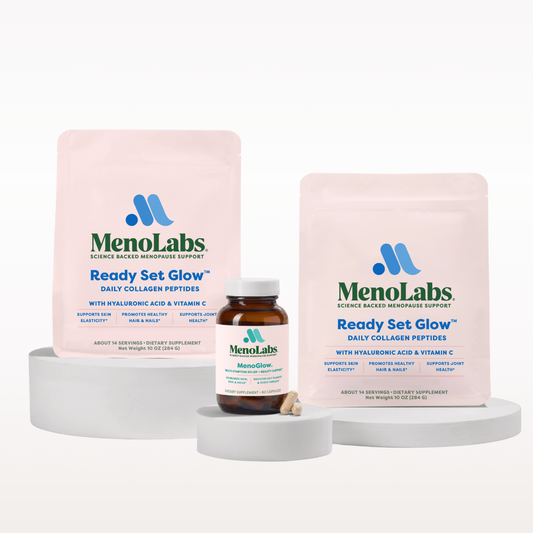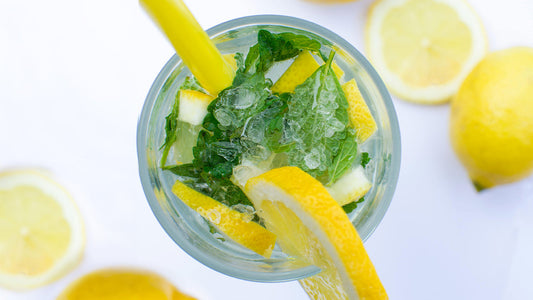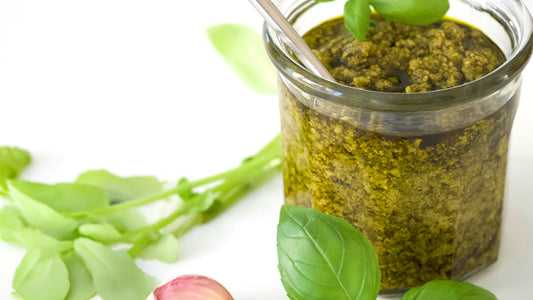Summertime is full of delicious eats — ice cream! Barbecue! — but not all of them are the healthiest options. In fact, a 2018 survey of UK parents found that kids eat up to 5 times more sugar during summer compared to other seasons. But even if you're not a kid spending the summer by the ice cream truck, odds are high that considering the season's many vacations, celebrations and laid-back attitude, you're not getting as many nutrients as you usually do.
Restructuring those summertime meals to better fit your health needs is crucial, especially for women in perimenopause and menopause. Summer is reported as a hot flash heavy season for women experiencing menopausal symptoms, and the foods we eat — like caffeine, alcohol, refined sugars, and spicy foods — can make those vasomotor symptoms, including hot flashes and night sweats, worse.
So how can we better reflect the body’s needs in our meals during the summer? We can eat more fiber.
Why is Fiber Important?
Dietary fibers are foods that cannot be broken down and digested by the body. Instead, these fibers help feed and fuel the growth of gut bacteria that populate the digestive tract, otherwise known as the gut microbiome. When these gut bacteria are imbalanced, it affects how well nutrients are absorbed into your bloodstream. When the body doesn’t get enough nutrients, it does not have adequate help maintain its many regulatory functions.
Consuming enough fiber can, not only help balance healthy gut bacteria, but it can also help slow down the digestion process, allowing the body more time to absorb essential nutrients from foods and supplements.
So how can you get more fiber into your diet this summer?
Shop Seasonal Produce
Shopping seasonally can seem like a daunting task at first, but it’s very simple once you get the hang of it.
Different produce items will be available to you based on where you live. For example, if you live in Connecticut you may have more leafy greens and fresh herb options than someone who lives in New Mexico. Be aware of what’s available in your area.
The second thing to consider is how early or late the season is. Produce options will be slightly different in early June compared to late August. Some fruits and vegetables will be riper and more abundant in the beginning of the summer, while others will be more plentiful toward the end of the season. Be sure to visit your local farmer’s market often to see what’s new and what’s still available. A CSA share, if it's available in your area, will deliver farm-fresh produce directly to your home several times a month, bringing you whatever produce is at its peak at the moment.
Less Sugar, More Fruits & Veggies
Although sugary treats can taste wonderful, especially on a hot summer day, they also have minimal nutritional value, and increase the likelihood of experiencing hot flashes and night sweats. While the occasional treat is a delight, it shouldn’t become a daily habit. So when you feel that sweet-tooth calling, skip the sugar and go straight for some fruits or vegetables.
Eating fiber-rich snacks can help you feel fuller for longer and feed the gut microbiome what it needs to stay healthy.
Some great snacking options include blueberries, strawberries, peas, carrots, mango, peaches, and apricots.
Grill Vegetables
When the barbecue grill comes out during those hotter months, some veggies on can be just as tasty as those burgers, hot dogs, or steaks. Grilled vegetables can be a great addition to your regular meals. They’re full of flavor and provide a lot of interesting textures to any dish. Of course, you can grill fruits, too. Grilled peaches, pears, even grilled mangos can be tantalizing and delicious.
If you’re the adventurous type and you want to get crazy with your grilled fruits and veggie options, look for some interesting recipes that spark your interest. Some people make salads entirely out of grilled vegetables and a little bit of quinoa or rice. Others make grilled fruit desserts with a light drizzle of honey and some high quality cheeses. The point is, there are thousands of options for you to choose from to give that grill a little more sizzle.
Get Creative With Summer Salads
If you're feeling like you're getting bored with summer salads, get creative and use unusual fruits and vegetables. Mango, tangerines, spinach, some light feta cheese, and grilled chicken can make a delightful summer salad. Don't forget to add some grains to your salads too. Foods like quinoa, brown rice, and jasmine rice can add some great textural contrast to summer salads and provide the gut with more fiber to keep it healthy and happy.
Create a Meal Plan
Planning out your meals can help you better tailor your shopping list to meet your health needs, and minimize spur-of-the-moment decisions to eat junk foods. Look at the areas in your diet that could use the most improvement and work your way from there. Feel free to speak to a doctor, dietician, or certified nutritionist to help you better structure your meal plan to meet your dietary needs.
Related Products
Blend Besties Bundle
Fresh Start Bundle
4.7 / 5.0
(553) 553 total reviews







